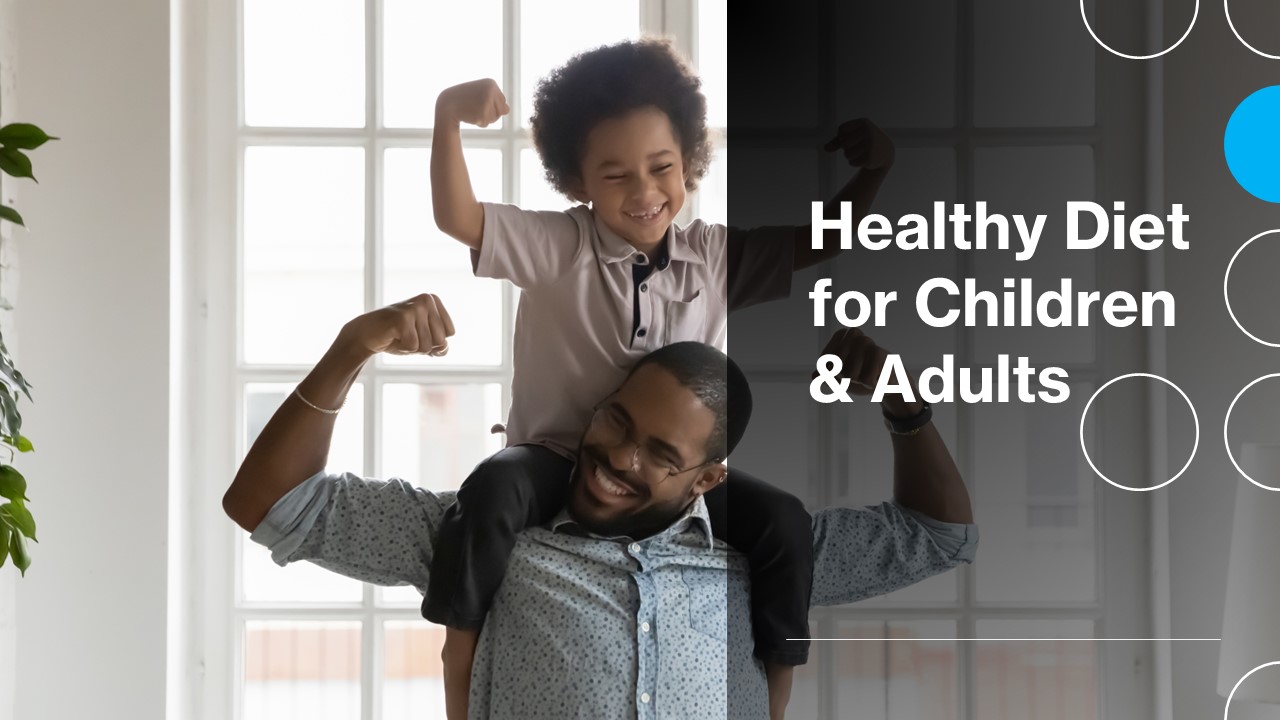Eating healthy is like giving our bodies good fuel to work well.
For adults, a healthy diet includes:
- Fruits and Vegetables: Eat lots of different-colored fruits and veggies. They’re good for you!
- Beans and Nuts: Foods like lentils, beans, and nuts are healthy choices.
- Whole Grains: Foods like unprocessed maize, millet, oats, wheat, and brown rice are better for you than processed ones.
- How Much? Try to have at least 400 grams of fruits and veggies every day. But, don’t count potatoes, sweet potatoes, cassava, or other starchy roots.
- Sugar Check: Don’t eat too much sugary stuff. It’s good to have less than 10% of your energy from sugars. That’s about 12 teaspoons for someone who eats around 2000 calories a day. Less is even better for your health.
- Fat Facts: Don’t get more than 30% of your energy from fats. The better fats come from things like fish, avocados, and nuts. Try to avoid fats from fatty meat, butter, and certain oils.
- Watch the Salt: Only have less than 5 grams of salt a day. That’s about one teaspoon. Make sure your salt has iodine.
For infants and young Children (is advised similar to adult), but these are important:
- Baby’s First Food: Babies should only drink breast milk for the first 6 months. It’s the best start for them.
- Keep Breastfeeding: Babies can keep drinking breast milk until they’re 2 years old or even older.
- Start New Foods at 6 Months: After 6 months, babies can try different foods along with breast milk. But don’t add salt or sugar to their food. They don’t need it.
Eating healthy when we’re young helps us grow strong and smart. It’s like building a good foundation for our bodies!
Source: WHO
Other interesting articles related to nutrition:
Knowing when to Eat is Important for a Healthy Body: Unveiling the Secrets of Meal Timing
Food and Aging: How What You Eat Can Affect Getting Older

